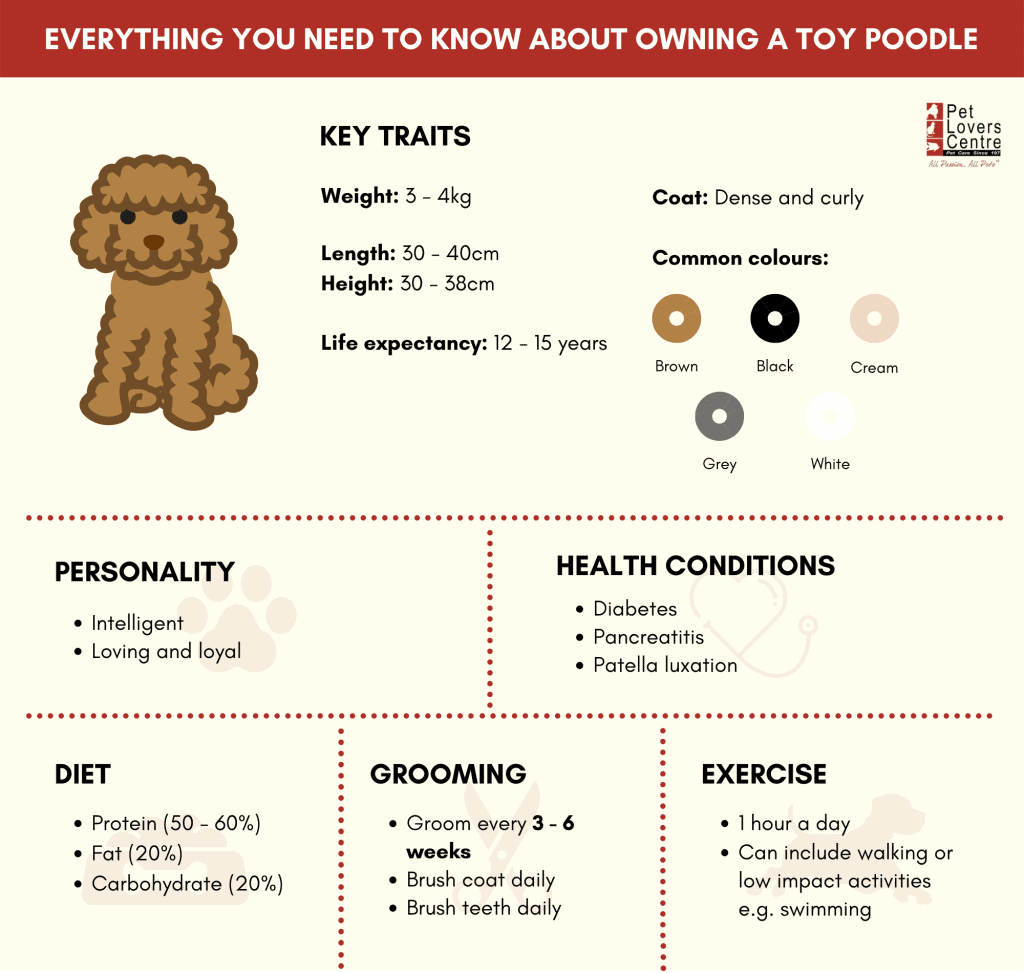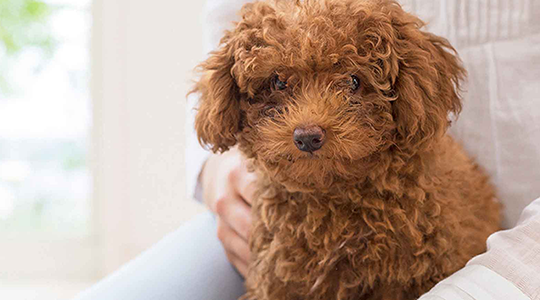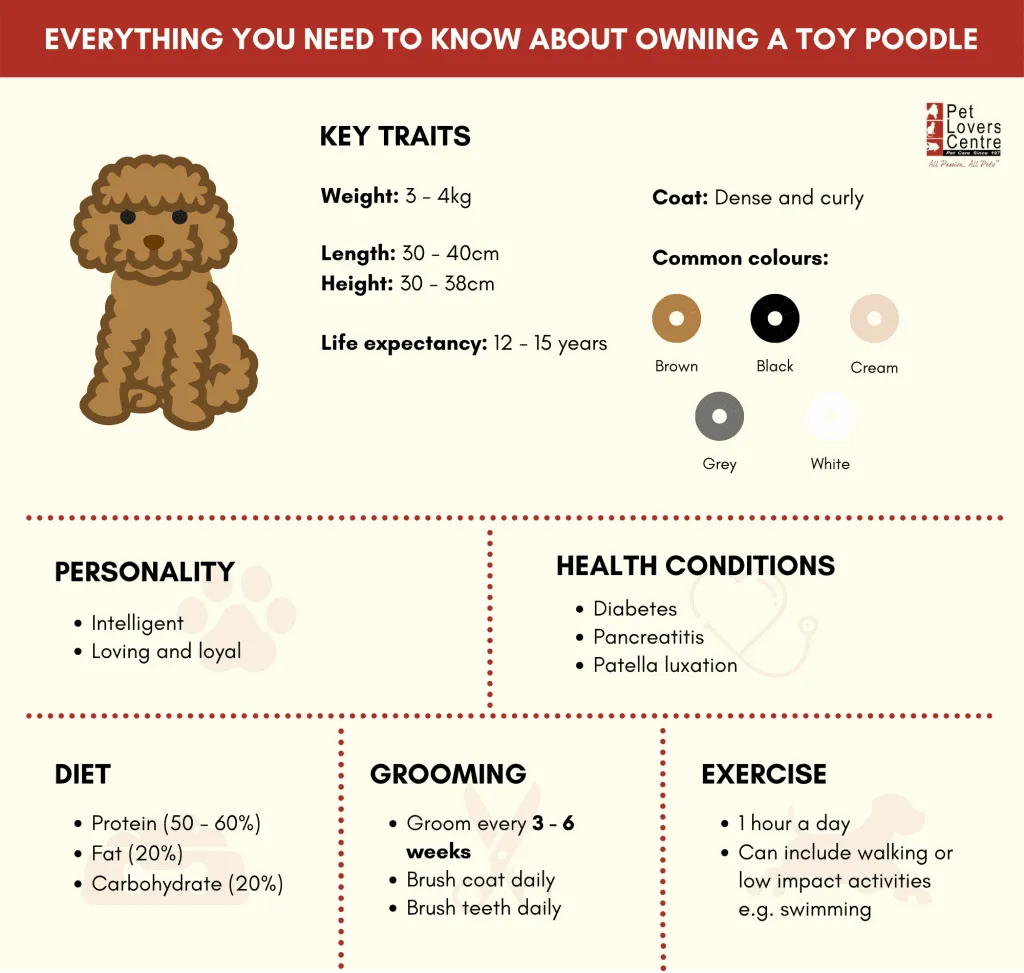When it comes to toy poodles, did you know that they are considered one of the most intelligent dog breeds? Their small size may be deceiving, but these pint-sized pups are known for their high level of intelligence, making them quick learners and great companions.
Toy poodles have a fascinating history that dates back centuries. Originally bred in Germany as water retrievers, they were later popularized in France as companion dogs for the nobility. Today, toy poodles are loved for their adorable looks, hypoallergenic coats, and playful personalities. In fact, their hypoallergenic nature makes them a great choice for individuals with allergies. With regular grooming and exercise, toy poodles can lead happy and healthy lives. Did you know that they are also highly adaptable and can thrive in apartments or larger homes alike? These little dogs have a big personality and are sure to bring joy to any household.
When it comes to toy poodles, there are a few key things you should know. These pint-sized pups are known for their intelligence, agility, and lively personalities. They require regular grooming to maintain their curly coats and can be prone to certain health issues such as dental problems and patellar luxation. Toy poodles are great for apartment living and make excellent companions. They thrive on attention and love to be part of the family. Socialization and training are important for a well-behaved toy poodle. So, if you’re considering adding one to your family, be prepared for a small dog with a big personality!

All About Toy Poodles
Toy poodles are small, intelligent, and elegant dogs that have captured the hearts of many dog lovers. They are known for their distinctive curly coat and playful personality. If you are considering getting a toy poodle or are simply curious about this breed, there are some key things you need to know. From their history and characteristics to their care and training needs, this article will provide you with a comprehensive guide to toy poodles.
In this article, we will explore various aspects of toy poodles, including their background, temperament, grooming requirements, health concerns, and training. By the end, you’ll have a thorough understanding of what it takes to care for a toy poodle and whether this breed is the right fit for you.
1. History and Origin
Toy poodles are believed to have originated in Germany, where they were bred down in size from Standard Poodles. They were initially used as water retrievers and their smaller size made them more agile and suitable for hunting in smaller spaces. Over time, toy poodles became popular as companion dogs and show dogs due to their charming looks and friendly nature.
Toy poodles were recognized as a separate breed by the American Kennel Club (AKC) in 1887. Today, they are cherished as both family pets and competitive show dogs.
2. Temperament and Personality
Toy poodles are known for their intelligence, alertness, and friendly nature. They are highly social dogs that love to be around people and are generally good with children and other pets when properly socialized. Toy poodles are also renowned for their poodle smile, expressive eyes, and joyful disposition.
While they are small in size, toy poodles have a big personality. They are energetic and playful, enjoying activities such as fetch, walks, and learning new tricks. However, they are not hyperactive dogs and can adapt well to apartment living as long as they receive regular exercise and mental stimulation.
3. Grooming Requirements
Toy poodles have a dense, curly coat that requires regular grooming to keep it in good condition. Their hair grows continuously, so they need frequent brushing to prevent matting and tangling. Many toy poodle owners choose to keep their dogs’ hair clipped short in a “puppy cut” to make grooming more manageable.
In addition to regular brushing, toy poodles also require regular bathing, nail trimming, and ear cleaning. Some owners choose to take their toy poodles to professional groomers for a more comprehensive grooming experience. It’s important to establish a grooming routine early on to keep your toy poodle’s coat healthy and tangle-free.
4. Health Concerns
Toy poodles are generally a healthy breed, but like any dog, they are prone to certain health conditions. Some of the common health concerns in toy poodles include:
- Progressive Retinal Atrophy (PRA): an inherited condition that can lead to vision loss.
- Patellar Luxation: a dislocation of the kneecap that can cause lameness.
- Legg-Calve-Perthes Disease: a degenerative condition in the hip joint.
- Epilepsy: a neurological disorder characterized by seizures.
Regular veterinary check-ups, a nutritious diet, and regular exercise can help minimize the risk of these health issues. It’s also important to obtain your toy poodle from a reputable breeder who conducts health testing on their breeding dogs.
5. Training and Socialization
Toy poodles are highly trainable dogs, thanks to their intelligence and eagerness to please their owners. They excel in various dog sports, such as agility, obedience, and rally. Early socialization and consistent, positive reinforcement training are key to shaping a well-behaved toy poodle.
While toy poodles are known for their intelligence, they can sometimes be stubborn or independent. It’s important to establish yourself as the pack leader and use positive training methods that reward good behavior rather than harsh punishment.
Is a Toy Poodle the Right Breed for You?
Now that you know the key aspects of toy poodles, you can make an informed decision about whether this breed is the right fit for you. Toy poodles are great for families, individuals, or seniors looking for a small, intelligent, and affectionate companion. However, they do require regular grooming and exercise, so make sure you can commit to meeting their needs.
If you’re ready to welcome a toy poodle into your family, make sure to do your research and find a reputable breeder or consider adopting from a rescue organization. A well-bred and well-cared-for toy poodle can bring years of joy and companionship to your life.
Key Takeaways: What Do I Need to Know About Toy Poodles?
- Toy poodles are a small breed of dog known for their intelligence and playful nature.
- They require regular grooming to maintain their curly, hypoallergenic coat.
- Toy poodles are highly trainable and excel in obedience competitions.
- They are friendly and affectionate, making them great companions for families and individuals alike.
- Due to their small size, toy poodles are well-suited for apartment living, but still need daily exercise and mental stimulation.
Frequently Asked Questions
Toy poodles are small, intelligent, and delightful companion dogs. If you’re considering adding a toy poodle to your family, there are some important things you need to know about them. Here are some frequently asked questions about toy poodles:
1. Are toy poodles hypoallergenic?
Yes, toy poodles are considered hypoallergenic dogs. This means they are less likely to cause allergies or trigger asthma attacks in people who are sensitive to pet dander. However, it’s important to note that no dog breed is completely hypoallergenic, as individual reactions may vary.
Toy poodles have hair rather than fur, which means they shed less and produce fewer allergenic particles. Regular grooming and bathing can also help minimize allergens. If you have allergies and are considering a toy poodle, it’s recommended to spend some time with the breed before making a decision to ensure you don’t have any adverse reactions.
2. What is the average lifespan of a toy poodle?
The average lifespan of a toy poodle is around 12 to 15 years. However, with proper care, some toy poodles have been known to live even longer. It’s important to provide them with a balanced diet, regular exercise, and routine veterinary care to ensure they lead a healthy and happy life.
Toy poodles are generally a healthy breed, but they are prone to certain health issues such as dental problems, allergies, and patellar luxation. Regular check-ups with a veterinarian and a nutritious diet can help prevent or manage these conditions.
3. How active are toy poodles?
Despite their small size, toy poodles are surprisingly active dogs. They have a lot of energy and require regular physical and mental stimulation to prevent boredom and behavioral problems. Daily walks, playtime, and interactive toys are important to keep them happy and healthy.
Toy poodles also excel in various dog sports and activities such as agility, obedience, and tracking. They are highly trainable and eager to please, making them suitable for various training activities.
4. Do toy poodles get along well with children and other pets?
Toy poodles can generally get along well with children and other pets when properly socialized from a young age. They are known to be friendly, gentle, and affectionate. However, it’s important to supervise interactions between toy poodles and young children to prevent any accidental mishaps.
Introducing a toy poodle to other pets should be done gradually and with supervision to ensure a smooth and successful integration. Proper training and socialization play a crucial role in shaping their behavior and interactions with others.
5. How much grooming do toy poodles require?
Toy poodles have a dense, curly coat that requires regular grooming to keep it in good condition. They do not shed like other breeds, but their hair continues to grow and can become matted if not properly cared for.
To maintain their coat, toy poodles need to be brushed regularly, at least a few times a week, to prevent tangles and remove any loose hair. Regular professional grooming is also recommended, which includes trimming, shaping, and cleaning their ears.

In summary, toy poodles are small, intelligent, and affectionate dogs that make excellent companions. They are known for their distinctive curly coat, which requires regular grooming to keep it looking its best. Toy poodles are highly trainable and excel in activities such as obedience, agility, and therapy work.
Toy poodles are generally healthy dogs, but they may be prone to certain health issues such as eye problems and hip dysplasia. Regular exercise, a balanced diet, and regular veterinary care can help keep toy poodles happy and healthy. If you are considering adding a toy poodle to your family, be prepared for a loyal and affectionate pet that will bring joy to your life.
